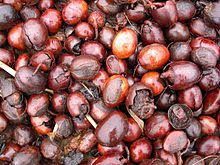What is it?
Shea butter is fat that’s extracted from the nuts of the shea tree. It’s solid at warm temperatures and has an off-white or ivory color. Shea trees are native to West Africa, and most shea butter still comes from that region.
Shea butter has been used as a cosmetic ingredient for centuries. Its high concentration of vitamins and fatty acids combined with its easy-to-spread consistency
Shea butter is technically a tree nut product. But unlike most tree nut products, it’s very low in the proteins that can trigger allergies.
- Shea butter contains high levels of linoleic acid and oleic acid.
- Shea butter has significant levels of vitamins A and E, which means it promotes strong antioxidant properties.
- Antioxidants are important, they protect your skin cells from free radicals that can lead to premature aging and dull-looking skin.
- It’s antibacterial, It may help prevent acne: Shea butter is rich in different kinds of fatty acids. This unique composition helps clear your skin of excess oil (sebum).At the same time, shea butter restores moisture to your skin and locks it in to your epidermis, so your skin doesn’t dry out or feel “stripped” of oil.
- It helps promote cell regeneration: Shea’s moisturizing and antioxidant properties work together to help your skin generate healthy new cells.
- It may help soothe conditions like eczema, dermatitis, and psoriasis. Shea’s anti-inflammatory properties help soothe skin and relieve itching.
Where do all of these benefits come from?
- linoleic, palmitic, stearic, and oleic fatty acids, ingredients that balance oils on your skin
- vitamins A, E, and F, antioxidant vitamins that promote circulation and healthy skin cell growth
- triglycerides, the fatty part of the shea nut that nourishes and conditions your skin
- cetyl esters, the waxy part of the shea nut butter that conditions skin and locks in moisture
Shea butter is packed with essential nutrients that can enhance your natural complexion and help you glow from the inside out.



